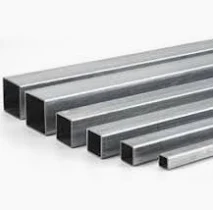

The Importance of Precision in Mechanical Parts Manufacturing
In the world of engineering and manufacturing, precision plays a critical role in the production of mechanical parts. These components are the building blocks of machinery and systems, and their accuracy can significantly impact performance, reliability, and longevity. In this article, we will explore the importance of precision in the manufacturing of mechanical parts, the techniques used to achieve it, and the implications for industries reliant on these components.
Understanding Precision in Mechanical Parts
At its core, precision refers to the degree to which repeated measurements or operations yield the same results. In mechanical parts manufacturing, this translates to the ability to produce parts that meet specific dimensional and geometrical tolerances consistently. Precision is not merely a desirable quality; it is essential for ensuring that various parts fit and operate together seamlessly. A lack of precision can lead to mechanical failures, reduced efficiency, and increased wear and tear on machinery.
Techniques for Achieving Precision
1. CNC Machining Computer Numerical Control (CNC) machining is a cornerstone of precision engineering. CNC machines are programmed to perform cutting, milling, drilling, and other operations with high accuracy. The automation of these processes minimizes human error and allows for the production of complex geometries that are difficult, if not impossible, to achieve through manual methods.
2. Additive Manufacturing Also known as 3D printing, additive manufacturing has revolutionized the way mechanical parts are produced. This technology allows for the creation of intricate designs with a high degree of precision. It enables the fabrication of lightweight and complex structures that traditional methods cannot easily replicate, thus expanding design possibilities while maintaining exact specifications.

3. Quality Control Systems Implementing robust quality control measures is vital for achieving precision. Techniques such as statistical process control (SPC) enable manufacturers to monitor their processes in real-time, ensuring that any deviations from desired tolerances are quickly identified and corrected. Equipment like coordinate measuring machines (CMM) provides exact measurements to ensure that the parts manufactured meet stringent quality standards.
4. Material Selection The choice of materials used in manufacturing mechanical parts also influences precision. Different materials possess varying properties that can affect dimensional stability, machinability, and overall performance. By selecting the right material for a specific application, manufacturers can enhance the precision of the parts produced.
Implications of Precision in Industry
Precision in mechanical parts has far-reaching implications across various industries. In the automotive sector, for example, precise components are vital for ensuring safety and performance. Automotive parts must not only fit together perfectly but also endure harsh operating conditions. Similarly, in aerospace and medical industries, where the margin for error is minimal, precision can be a matter of safety and efficacy.
Moreover, as industries move toward automation and the Internet of Things (IoT), the need for precision becomes even more pronounced. Smart machines and connected components depend on accurate data and responses; thus, any lack of precision could lead to catastrophic failures or inefficient operation.
Conclusion
In summary, precision is a fundamental aspect of mechanical parts manufacturing that cannot be overlooked. With the advancements in technology and manufacturing processes, achieving high levels of precision is more attainable than ever before. As industries continue to evolve and demand higher standards, the emphasis on precision in mechanical parts will undoubtedly grow, ensuring that we build not only functional but also efficient and reliable systems for the future. The continuous pursuit of precision remains a hallmark of engineering excellence, reflecting a commitment to quality and performance in an ever-competitive landscape.